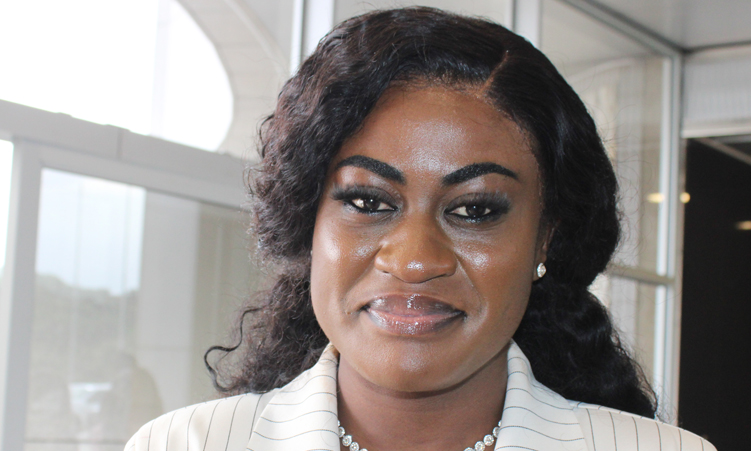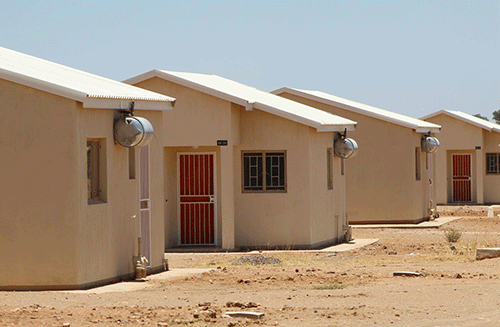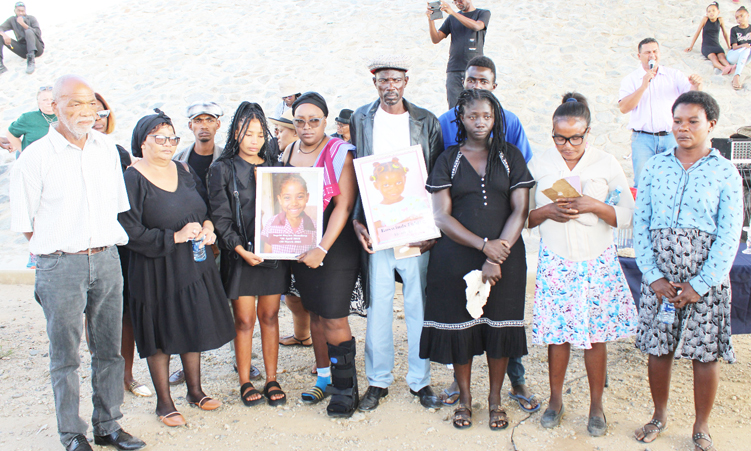‘INDEED his blood truly waters our freedom.’
With these words, the Deputy Chairperson of the National Council, Margreth Mensah-Williams, on Saturday ended a tribute to the late lawyer, political activist and Swapo member Anton Lubowski.
On the twentieth anniversary of Lubowski’s death, Mensah-Williams was one of the speakers at an event on the Windhoek campus of the University of Namibia where the assassination of Lubowski on September 12 1989 was commemorated. Also speaking at the event were Lubowski’s wife, Gabrielle Lubowski, and a friend, Charles Courtney-Clarke.Recalling the evening when, at about 20h40, she received a phone call to tell her that Lubowski had been shot in front of his house in Windhoek about ten minutes earlier, Mrs Lubowski said she could not at first believe that someone who had lived his life with such extraordinary passion and energy as Lubowski did could ever be killed.The two decades that followed on Lubowski’s death have been hard for her and their two children, Almo and Nadia, who were respectively 11 and nine years old when their father died.For her, the past twenty years has been a search to make sense of that shattering event, and to understand how the world could on the one had have good personified in people like Nelson Mandela and Mahatma Gandhi on the one hand, and on the other hand produce an Idi Amin, an Adolf Hitler, a PW Botha, she said.Lubowski had a deep compassion with people; he loved people, she said. He believed anything is possible.It has taken her twenty years to also understand that the impossible is indeed possible, that good is stronger than evil, that life is stronger than death, and that the truth will finally prevail, she said.Lubowski used to say that Namibia is rich and that in a free Namibia there would not be any poor person, Mrs Lubowski recalled.History has so far proven otherwise, though.’As long as there’s one poor, oppressed or uneducated person, we know we are not there yet,’ Mrs Lubowski said.In the spirit of Anton Lubowski, who loved people, she said, she is appealing to Namibians to uplift each other, to see the goodness in each other and to show love to each other.To keep Lubowski’s memory alive, ‘we need as a nation to spread a message of tolerance, dignity and humanity,’ Mensah-Williams said. ‘These are the three principles Advocate Lubowski strongly believed in and stood for and eventually, sadly paid the price for it.’Lubowski became Swapo’s most visible white member when he joined the party in 1984. His increasing political involvement and high-profile status as a white Swapo member however came at great personal cost for himself and his family, as he became the target of death threats and abuse, and was detained without trial on six occasions, Mensah-Williams and Courtney-Clarke both recalled.Said Mensah-Williams: ‘was controversial because fellow white Namibians, most of whom regarded Swapo with deep animosity, accused him of betraying their cause and of being a misled idealist who was being used in sinister ways that he could not understand.However, white Namibians were a small minority. The large majority of Namibians admired Anton’s courage and forthright support for human rights and for liberation from apartheid and colonialism. To them, he was a symbol of how Namibians of all skin colours and backgrounds could unite in common cause, in spite (of) deep economic, cultural, and historical divisions.’On the day after the assassination of Lubowski, a 52-year-old Irish national, Donald Acheson, was arrested in Windhoek. He was later charged with the murder of Lubowski, but on May 7 1990 the charge against him was withdrawn and he went free. That was after the prosecution, which wanted Acheson to stand trial together with two South African members of the Civil Co-operation Bureau (CCB), Daniël Ferdinand Du Toit (‘Staal’) Burger, and Leon André (‘Chappie’) Maree, could not get another postponement of the case against Acheson while his two would-be co-accused remained absent from the dock.The CCB was a secret unit of the Special Forces branch of the South African Defence Force. It was involved in several dirty tricks operations against perceived enemies of the former South African government.Courtney-Clarke quoted remarks made by the late Judge Ismail Mahomed in April 1990 when he was asked to postpone the case against Acheson to give the prosecution more time to try to get hold of Burger, Maree and other CCB members that it wanted to use as witnesses at a trial on the assassination of Lubowski.The murder or Lubowski ‘is a matter of very fundamental public importance’, Judge Mahomed said.The Judge also stated: ‘His cold-blooded murder is a serious matter. The vigorous prosecution of whoever might have been responsible for this deed is clearly in the public interest and crucial to the administration and image of justice in Namibia.’That image and that interest might prejudicially be impaired if there ever follows a perception in the public (legitimate or otherwise) that justice was defeated by procedural complexities, by legal stratagems, by tactical manoeuvres or by any improper collusion. The general community of Namibia must be able to feel that every permissible avenue to pursue the prosecution of whoever might be the killer of Mr Lubowski was followed.’Up to now, nothing has come of the wish that Judge Mahomed expressed.’Procedural complexities, legal stratagems, technical manoeuvres’ – these, instead, have won the day, Courtney-Clarke indicated. Courtney-Clarke hinted that the investigation into the Lubowski assassination had been flawed right from the start. He recalled, for instance, that on the morning after the killing, he arrived at his friend’s house, where part of the pavement had been cordoned off by the Police, and proceeded to enter the house and go to Lubowski’s study unhindered. He ended up looking after the house for the next few days.’No policeman ever asked me who I was or questioned me in regard to this matter,’ he said.
Stay informed with The Namibian – your source for credible journalism. Get in-depth reporting and opinions for
only N$85 a month. Invest in journalism, invest in democracy –
Subscribe Now!










